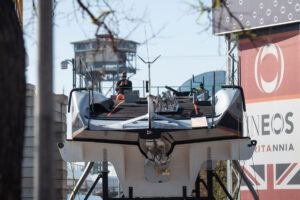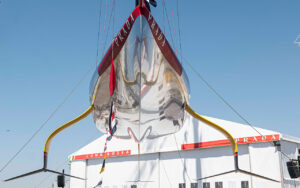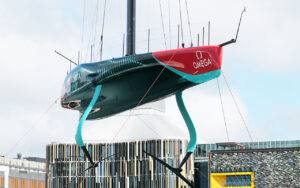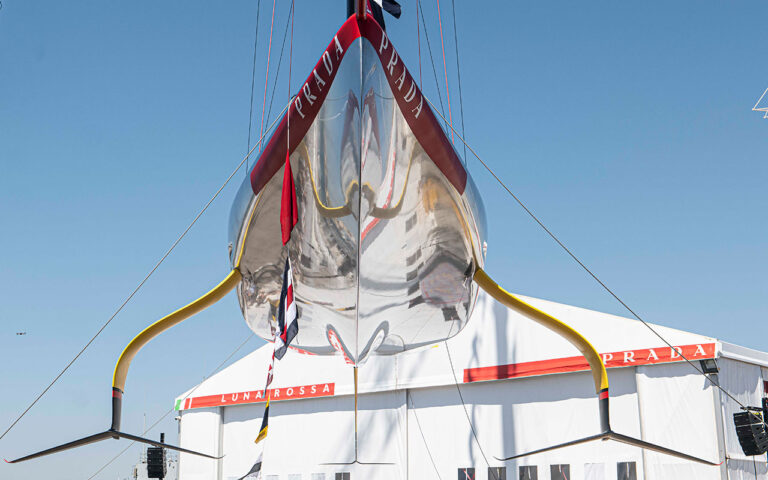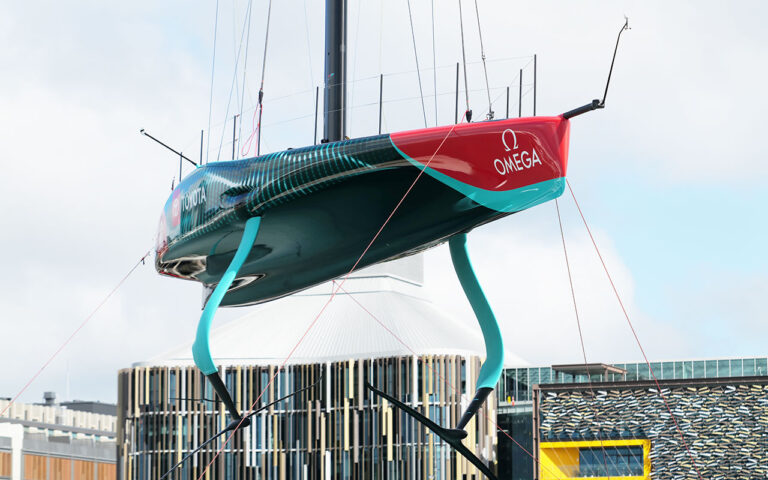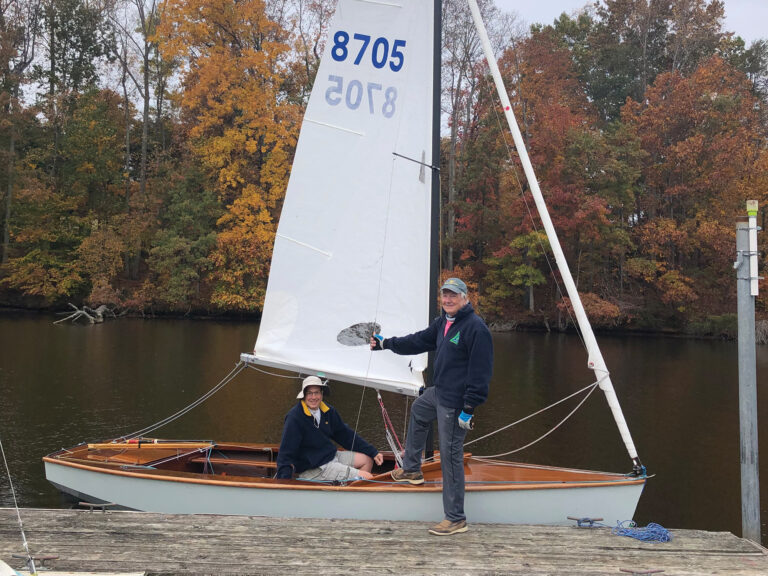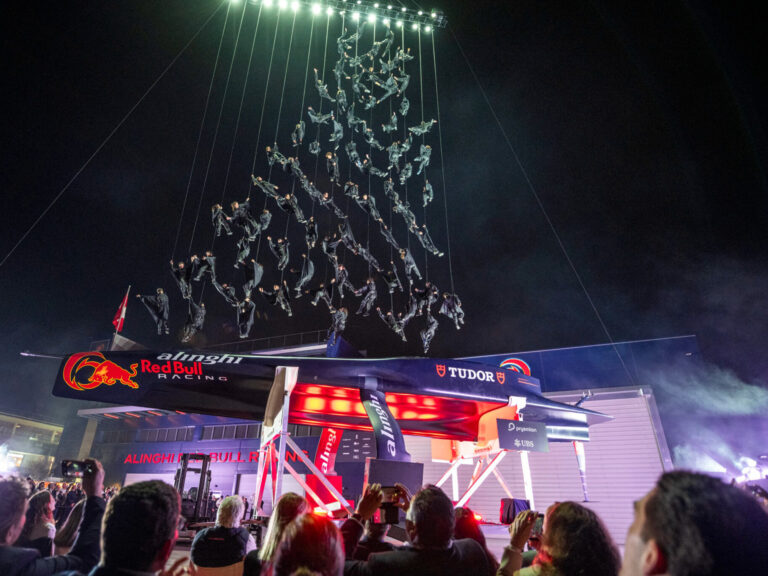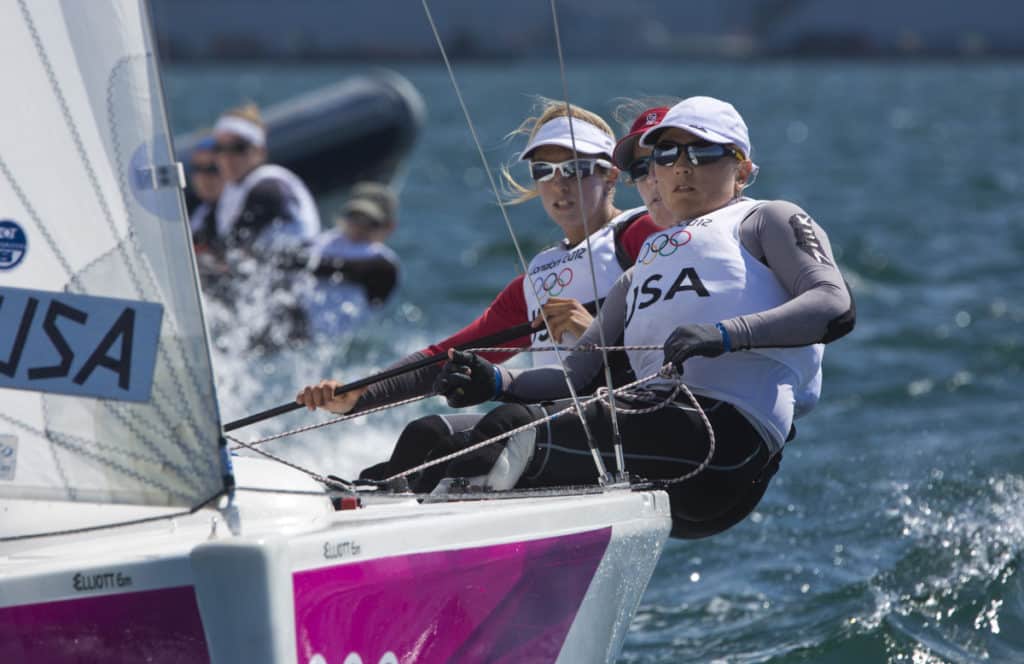
The match racing trio of Anna Tunnicliffe, Molly Vandemoer, and Debbie Capozzi started the 2012 Olympics as the strong American medal hope in the sailing. While they haven’t had a great regatta, their teammates have struggled even more. With the round robin portion nearly done, Tunnicliffe and company have officially qualified to move on to the quarterfinals. From there, the records will be erased, and it’s the a best-3-of-5 elimination tournament for the medals. We caught up with skipper Anna Tunnicliffe today after a come-from-behind victory over the Dutch team lifted them to 6-3, with two races remaining.
This format seems a little bit different from what you’ve seen in the past, especially in the ISAF Sailing World Cup events. Here it’s 12 teams, eight move through; there’s no repechage or gold fleet round robin. Aside from just getting into that top group, what is there to achieve in the round robin?
Basically, you’re checking out the venue, it’s a slightly different course than what we’re used to, we’re much closer to shore which is making it much more tricky, you’re seeing where everybody’s at, and seeing everybody’s moves. Really it’s ultimately just trying to win as many races as possible to kind of get into your competitors’ heads, and make it through to the quarterfinals, that’s the most important goal.
It seems like among the top group it’s very even. Is there a lot of the value to the seeding you’ll get out of this round robin?
Everybody’s really good. Everybody who’s going to move on is really good. You can hope and pray that you’re going to get seeded against a weaker team, but there are no weaker teams. So you’re going to go out there, and the quarterfinals are going to be a battle in every, in all of the line-ups, so really it’s just going out and winning and getting used to the sailing out there.
If you look at the seeding, and place some value in it, today would have seemed to be a key race that kept you ahead of the French, ahead of the British teams, and was not over, at least as far as I could tell, until the last leg. Tell us about the race today with the Dutch.
We had a really good race with the Dutch. We kind of made a little mistake at the start, starting at the wrong side of them, and they were able to round three or four lengths ahead at the top mark. We did a really good job downwind—the girls calling the shifts and flying the kite—caught right up to them on the first downwind, which actually kept us in the race, and we kept it within two or three lengths the second time [up the beat]. The last downwind we were able to just position on their breeze quite early on, closed right up to them, jibed into a controlling position, and then the race basically came down to us being able to hold them outside of the pin at the finish line, and you know there was a twin penalty that happened between us—we got a penalty, they got a penalty—both at the same time; ultimately they offset, which allowed us to then jibe and lead into the finish line. It was definitely a key race to win. I have not looked really at the scores, so don’t know who’s where, but you know, we’ve got to just keep winning the races, and I guess the goal is the quarterfinals right now.
Has this round robin been more of a struggle than some of the other round robins in the last six months, eight months?
I wouldn’t say it’s been more of a struggle, no. The first day we had a bit of bad luck in catching a mark on our keel, because the [pin boat] wasn’t anchored properly; the next day we had a solid race with the Aussies, it came down to six inches, and it was their turn to win it. Yesterday we had a good race with the Russians, and we just made a small mistake and they passed us. We have three losses and it’s…we’re not by any means thinking we’re struggling at all. The difference I’d say in this regatta is it’s just so drawn out that, that you don’t ever really get into the swing of things. You just do a race, and then you’re out of the boat, and then you go back in, you do a race, and then you’re done for the day. There’s no settling in and getting going. But, it’s been fun, and everybody’s having to deal with it, so it’s the team that deals with it the best really.
The Russian race, the mistake you made, was that missing a layline? I was watching it on TV, I saw you guys jibe, and I was surprised they didn’t jibe to cover you, they kind of went beyond you and then jibed underneath you, and then they were able to do I guess similar to what you did today: hold you out past the mark, right?
Yeah, it was a similar idea. We jibed; we thought we saw a left shift coming. We did see a left shift coming, we just jibed a little too soon for it, and we missed our layline by a length and a half, which is a bit unfortunate because they were able to hold us out, and then I made a mistake right at the bottom of the course which put us two lengths behind instead of right on their stern. You know, we were a bit disappointed with that. I hate to say you live and learn and move on, but I guess that’s really what we did.
Day off tomorrow, is that right?
Day off tomorrow, yeah, we’re excited.
No boatwork to do?
[Laughing], no.
What are you doing on your day of to keep yourself occupied?
I think we’re going to go and try to watch the racing up in Nothe actually. Try and see it from the spectators’ perspective. None of us have really ever been over there and seen the course from there, so check it out and just relax.
When you go to Nothe, do you go in uniform, or incognito?
We’re going to go in uniform, cheer our fellow USA sailors on.

